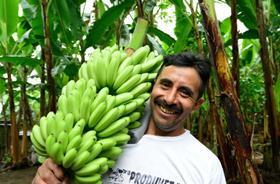
With huge hurdles still to be overcome in Brexit talks, the Fairtrade Foundation has warned of the impact of a ‘no-deal’ scenario on producers in developing nations.
In a report released on 19 September the charity has warned that the failure to reach a deal could lead to an increase in the cost of trade with developing nations. This could potentially have four damaging effects, according to the charity:
1)Companies switching their sourcing arrangements, ending long-term relationships with suppliers
2)The burden of increased tariffs and other costs being pushed down onto producers and workers through lower purchasing prices and lower wages
3)Currency devaluation hitting Fairtrade companies importing from developing countries
4)Companies stepping back from Fairtrade commitments, resulting in smaller volumes being bought on Fairtrade terms, less Fairtrade influence on issues such as living wages, and less investment in programmes
The report’s author, Helen Dennis, who is policy and advocacy manager at the Fairtrade Foundation, said:“March 2019 is now looming, but without clarity on a withdrawal agreement and transition period, many Fairtrade producers still don’t have guaranteed access to the UK market after Brexit Day.
“There could still be an opportunity to rethink UK trade policy with development at the heart, but without swift progress to secure a deal, good work that has been built up to support farmers in developing nations, including through Fairtrade, will be at risk.”
The report sets out how a number of different commodities, including bananas, cocoa and flowers, could be impacted if the UK is forced to revert to WTO rules. It also looks at the effect of exiting without guaranteeing developing countries the market access they currently have through the EU.
Fairtrade is calling on the UK Government and EU negotiators to step up efforts to avoid a ‘no-deal’ Brexit. In addition, the charity wants any agreement between the two sides to ensure that:
- Developing countries do not lose their market access, especially those with existing Economic Partnership Agreements (EPAs) and Free-Trade Agreements (FTAs)
- A future UK-EU agreement supports trade with developing countries
- Developing country producers are protected from any negative impacts of Brexit
- Future trade policy has development objectives at its heart
The report notes that Brexit could bring future opportunities for Fairtrade farmers, but only with the implementation of a transition period and careful consultation to develop and implement future policy, and to avoid an unnecessary economic shock.



